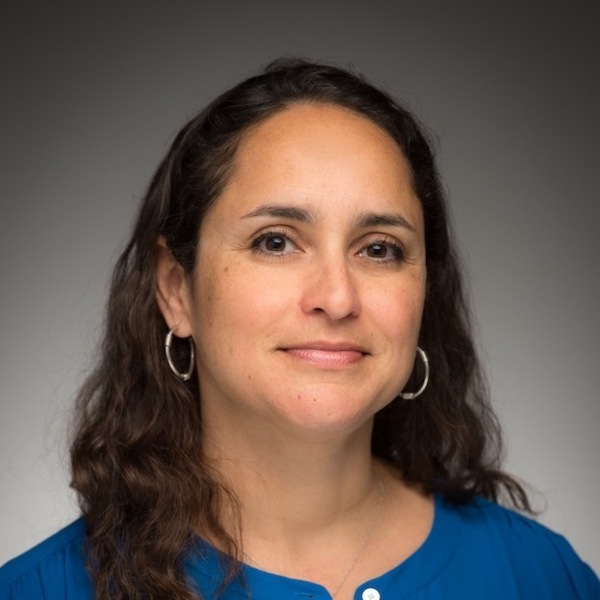Diversity, Equity & Inclusion
The Department of Romance Languages and Literatures is committed to creating and maintaining an inclusive, safe, and healthy environment for every individual in our community. We believe that all aspects of a person's identity should be valued and respected and we emphasize the importance of cultivating and respecting human singularities, both in the classroom and beyond.
The members of our Department are actively taking the following steps to address the intersectionality of discrimination based on language background, race, ethnicity, gender identity, religious or spiritual beliefs, sexual orientation, disability, age, immigration status, and economic background, among other factors.
We are:
- Elaborating a statement to recognize and support a diverse community in RLL;
- Identifying present limitations and perceived barriers to inclusivity in the foreign-language and culture teaching/learning context;
- Collectively sharing a list of best teaching practices, such as incorporating options for students to choose non-binary pronouns in the RLL courses they take; or adding inclusion techniques for neurodiverse classrooms, among others;
- Designing workshops and discussion events to evaluate how RLL can further implement inclusivity in the classroom;
- Recommending that curricula are designed to respect all students’ identities and that instructors lead meaningful discussions surrounding the evolving impact of diversity in language and culture.
Related campus organizations and resources
Committee Members
-
![]()
Azeb Haileselassie
Co-chair
-
![]()
Pedro A. Aguilera-Mellado
Co-chair
-
![]()
-
![]()
-
![]()
-
![]()
Relevant Courses
The following list includes some of the more commonly-taught courses with connections to DEI-related themes in the Department of Romance Languages and Literatures. It is not meant to be exhaustive, nor are these courses offered every semester. Rather, the list is intended to help students familiarize themselves with the kinds of courses we teach. Please contact committee members or listed instructors for more information.
Italian
ROIT 20202 Exploring Italian Culture: Intermediate Italian II
Instructor: Kathleen Boyle
ROIT 20202 is a fourth-semester Italian course that is designed to develop written and oral communication skills and to prepare students for upper-level courses in the Italian department. Throughout the semester, students will work towards obtaining linguistic fluency while exploring Italian culture through the films of some contemporary well-known directors. Each film will be presented in its historical and cultural context, which will provide us with the starting point of our class discussions. Cultural readings and literary excerpts drawing upon the themes of each unit and the themes presented in the films will be provided to supplement our discussion of the film.
ROIT 20612 Genesis of the Italian-American Identity
Instructor: Kathleen Boyle
At the turn of the twentieth century the US experienced one of the largest immigration waves in its history. Millions of Italian immigrants who made their way through Ellis Island at the time would leave a permanent imprint on the American landscape and social texture, just as the American experience would shape their identity. This course explores in an interdisciplinary way the many cultural aspects that define Italian-Americans, including religion, language, family structure and gender roles, traditions and celebrations, cuisine, political and social worldview, and artistic representations. The aim of this course is for students to analyze how these cultural facets created the Italian-American identity.
ROIT 40510 Italian Cinema I: New Realisms in the Old World
Instructor: Charles Leavitt
This course explores the history of Italian film from the silent era to the 1960s, an epoch stretching from Francesca Bertini's Assunta Spina to Federico Fellini's La dolce vita. At the center of this period is the age of Italian neorealism, when directors such as Vittorio De Sica, Roberto Rossellini, and Luchino Visconti invented new ways of looking at the world that radically transformed the history of world cinema. Focusing their attention on issues and individuals that had gone unseen in Fascist and post-Fascist Italy, the neorealists challenged established norms by making the experiences of ordinary Italians increasingly visible, developing techniques for representing reality that continue to influence filmmakers across the globe. We will analyze how questions of class, faith, gender, identity, and ideology intersect on screen as Italian directors explore and attempt to intervene in a rapidly transforming modern world. With a filmography featuring both masterpieces of world cinema and cult classics, this course will investigate how the quest to capture reality reshaped every genre of Italian film, including action & adventure, comedy, crime, documentary, melodrama, mystery, thriller and more. The course is taught in English and all films will have English subtitles.
ROIT 40914 Primo Levi: Literature and Life
Instructor: Charles Leavitt
Primo Levi has been called "a major, universally recognized, icon in Holocaust literature" (Geerts), indeed "the witness-writer par excellence," because "his narrative, poetry and essays about his time in Auschwitz are among the most widely read and most widely lauded of all writings on the Holocaust" (Gordon). Levi was this and more: witness and storyteller, scientist and writer, he was among the greatest authors and moral authorities of the twentieth century. In this course, taught in Italian, we will read Levi's first and most famous work, Se questo - un uomo (If This is a Man, 1947), a masterpiece and milestone in the Italian tradition, in which Levi recounts his internment in Auschwitz. With Levi, we will ask what it means to live, what it means to be human, in and after the Nazi death camps. With Levi, too, we will broaden our exploration to address vital questions of faith, identity, meaning, truth, responsibility, love, friendship, freedom, diversity, survival, science, and salvation as we read selections from such fundamental works as La tregua (The Truce, 1963); Il sistema periodico (The Periodic Table, 1975); Lillit e altri racconti (Moments of Reprieve, 1978); and I sommersi e i salvati (The Drowned and the Saved, 1986). Throughout the course we will also make use of materials from the Primo Levi Collection of Notre Dame's Hesburgh Library, one of the world's foremost collections dedicated to the study of Primo Levi.
French
ROFR 2012: Intermediate Creole I
Instructor: Karen Richman
This course is intended for students who have completed Beginning level Creole or who have attained equivalent competence in the language. In small-group teaching sessions, students will be prepared for conversational fluency with basic reading and writing skills, emphasizing communicative competence as well as grammatical and phonetic techniques. Our study of Kreyòl is closely linked to our exploration of how the language is tied to Caribbean society and culture. Evaluation of student achievement and proficiency will be conducted both informally and formally during and at the conclusion of the course. Those looking to develop or improve their language skills are welcome to the class. The program is designed to meet the needs of those who plan to conduct research in Haiti or in the Haitian diaspora, or who intend to work in a volunteer or professional capacity either in Haiti or with Haitians abroad.
ROFR 40710: Public Women: Gender, Celebrity, and History (1789 - 1914)
Instructor: Madison Mainwaring
Britney Spears. Anna Nicole Smith. Janet Jackson. We thought we knew their tragic stories; we thought they only had themselves to blame. In recent years, however, we have reappraised these maligned women and the pervasive misogyny to which they were subjected in a supposedly post-feminist era. In this seminar, we will examine the gendering of celebrity in France and its former colonies over the course of the long nineteenth century, engaging with legacies of famous women from Marie Antoinette to Aïssa Maïga. Each week, we will study conflicting depictions of a public figure, seeking to understand the structures with which commentators controlled women’s narratives—and how women in turn developed their own strategies of resistance. Drawing from a range of sources including sculptures, choreographies, films, and autobiographies, we will engage with interpretive approaches that interrogate hierarchies of memory, history, and culture. Taught in French.
ROFR 60907: Transmissive Texts: Writing Exile and Migration in French (pending)
Instructor: Alison Rice
What can a literary work revive and restore? What can it preserve for posterity? What is a cinematic corpus capable of capturing? These inventive texts possess the potential to play a crucial role in maintaining memories, even when temporal and geographical distances have threatened to stifle the recollection of history, culture, religion, and genealogy. For those who have left their homeland behind to come to France, the art of telling compelling stories that communicate values and create a deep sense of inheritance is indispensable. Immigrant authors have excelled in this practice, even in circumstances marked by estrangement and exile. They infuse their literary and cinematic creations in French with a passionate focus and sense of purpose as they find within their work in French an especially effective form of transmission — of values, beliefs, and traditions — that proves to be contagious in the most enriching ways.
ROFR 40970: Tahiti and the Colonial Imagination
Instructor:
Blue lagoons and white sand beaches: we are all familiar with the idyllic image associated with Tahiti. But do you see the mushroom cloud in the distance? If the island’s beauty is undeniable, the depiction of Tahiti as a tropical paradise is linked to, and makes possible, a darker side: that of two centuries of French colonial occupation and three decades of atomic testing. Where, then, does this representation come from and how was it shaped? How have settler and Indigenous actors sustained and resisted this image? In this class, we will explore the complex and multifaceted representations of Tahiti and its inhabitants through both the European and the Polynesian lenses. From 18th-century philosophical reflections to 19th-century paintings and contemporary novels written by Indigenous Francophone writers, we will discuss and critically analyze the political and environmental stakes of representation in Mā’ohi Nui/French-occupied Polynesia. Taught in French.
Portuguese
ROPO 30810: Brazilian Literature in dialogue with new arts and media
Instructor: Marcio Bahia
In this course, students will have a broad introduction to the masterpieces of Brazilian Literature, from colonial times to modernismo. Our corpus will include works by great masters such as Gregório de Matos, José de Alencar, Machado de Assis, Clarice Lispector, and Jorge Amado. Furthermore, the close reading of these texts will be enriched by the analysis of contemporary music, graphic novels, TV shows and movies that adapt, reshape, recycle and remediate Brazilian literary classics. Taught in Portuguese.
ROPO 40598: Cinema of Portugal and Lusophone Africa
Instructor: Ana Fauri
This course aims to evaluate how major cultural, social and historical events are portrayed in cinematographic productions of Portugal, Angola, Mozambique and Cape Verde. We will explore issues such as gender, racial and social disparities, the legacies of dictatorship and the colonial wars, the Luso-African struggles for independence, the role of the language in building a nation, and the influence of the Portuguese culture in its former colonies. Our goal is to investigate how film productions from and about those countries contest hegemonic accounts, and to examine the interconnections between history, memory and cultural identity and praxis. Films such as All is Well, by Pocas Pascoal (Angola), Dribbling Fate, by Fernando Vendrell (Cape Verde), Sleepwalking Land by Teresa Prata (Mozambique), Cats Don't Have Vertigo, by Antonio Pedro Vasconcelos, April Captains, by Maria de Medeiros (Portugal), as well as the documentaries Lusitanian Illusion, by Joao Canijo, and Hope the Pitanga Cherries Grow, by Kiluanje Liberdade and Ondjaki will serve as a vehicle for a deeper and broader understanding of how social, racial and cultural issues play a role in the past and present time in Portugal, Angola, Mozambique and Cape Verde. Conducted in English.
Spanish
ROSP 20500: Conversation and Writing for Heritage Speakers of Spanish
Instructor: Maria Ruiz Garcia
This course is designed for learners who have a personal connection to the Spanish language, having been exposed to it at home or in their community from a young age, and as such already understand and/or speak the language. The main focus is on language awareness, with the goal of enhancing language skills and deepening cultural understanding. Emphasis will be placed on practical language use, cultural exploration, and critical analysis of cultural artifacts. This course is founded on the principle of respecting, validating and legitimizing all modes and registers of speech that students bring with them to the classroom. Students will be introduced to linguistic variants of Spanish in the pursuit to foster awareness of linguistic and sociolinguistic aspects related to Spanish in the United States. The specific objectives are to further develop proficiency/competence in reading and writing skills, while expanding the whole linguistic repertoire needed in academic settings. Students will become aware of certain norms of written Spanish, such as the use of spelling, punctuation, accent marks and certain grammatical points particular to heritage speakers. It will expose students to a variety of text formats: short stories, poetry, songs, visual arts and film from the Spanish-speaking world.
ROSP 30051/CEL: Once Upon a Time: Children's Literature and Community Connections
Instructor: Rachel Parroquin
Students will be introduced to Literatura Infantil y Juvenil (LIJ) in the Spanish-speaking world through a combination of considerable reading of LIJ across genres and levels and a critical perspective of LIJ via academic text and articles. Books read will include many award winners by prolific writers and illustrators of LIJ, as well as widely known writers for adults who have also written children's books. Among genres read will be folklore, narrative, fiction (representing afro-latino, indigenous and other multi-cultural groups; contemporary, realistic, historical), short story, and poetry. In addition, students will develop criteria for evaluating quality LIJ through a variety of interdisciplinary perspectives. Finally, there is a Community-Based Learning (CBL) component where students will share LIJ with the local Latino community through CBL projects and a reading program with Latino youth. Pre-requiste: ROSP 20202 or above or placement by exam. This course can count as an advanced elective towards the major. Taught in Spanish. Students must have a Language Exam Score between 440 and 600 to enroll in this class.
ROSP 30201: Introduction to Latino Studies
Instructor: Marisel Moreno
This course will examine the Latino experience in the United States, including the historical, cultural, and political foundations of Latino life. We will approach these topics comparatively, thus attention will be given to the various experiences of a multiplicity of Latino groups in the United States. This course has an optional community-engaged learning component with La Casa de Amistad.
ROSP 30895: Race, Communication, and Technology in the Dawn of Latin America
Instructor: Eduardo Febres Muñoz
This course examines the material and discursive relation between race and communication technologies in Latin American literatures and cultures. It focuses on the contributions made by indigenous and Afro-descendant people’s political actions and communicational tactics to the foundation and transformation of the Latin American literary canon. Through readings of literature, film, and other cultural artifacts, students will explore the ways in which race and communication technologies were intertwined throughout the birth of Latin American “writing”, and how the political and artistic practices performed by racialized groups shaped the cultural production of the region. Additionally, students will analyze how new media technologies have influenced power dynamics and cultural production in contemporary Latin America. By the end of the course, students will have developed a basic understanding of the foundation of Latin American literary tradition, focused on the tense and dynamic relation that it had with racialized groups, and communication technologies.
ROSP 40893: Afrolatinidades
Instructor: Marisel Moreno
This course centers Blackness within latinidad. In it, students will learn about the history of Blackness in Latin America, and how that history continues to shape the experiences of AfroLatina/os in the US today. We will approach Blackness from a transhemispheric perspective, paying attention to how it is erased through the discourses of mestizaje and latinidad. We will analyze literary and cultural works by AfroLatina/os with roots in Mexico, Honduras, Nicaragua, Panamá, Puerto Rico, Cuba, Dominican Republic, Haiti, and Perú. This is a CBL course and students will volunteer at La Casa de Amistad once a week. Open to non-Spanish majors who are fluent in Spanish or are Spanish heritage speakers. Taught in Spanish and can count as Modern Latin-American Area requirement.
ROSP 63820: Race and Gender in the Iberian Atlantic
Instructor: Karen Graubart
This course serves as an introduction to the field of colonial Latin American (social, intellectual, legal) history, and a survey of new thinking around race and gender in the colonial context. It also offers an introduction to some newer methods: given that our archives are generally not organized to emphasize gender, race, and sexuality, and our documentation often occludes subaltern voices regarding these issues, how can we ask and answer fresh questions about these topics? This has been probably the most dynamic part of the field in recent decades, and so our readings will often be very recent, though I attempt to include some classic texts and contextualizations.
ROSP 63875: Cuban Literature, History, and Culture from the Late Colonial Period to the Present
Instructor: Thomas Anderson
This course will offer a panoramic view of Cuban literature written over the last 150 years. Through readings of short fiction, novels, poetry, theater, and essays by authors such as Gertrudis Gómez de Avellaneda, José Martí, Nicolás Guillén, and Alejo Carpentier, we will explore various topics such as colonialism, slavery, U. S. imperialism, and the Cuban Revolution.





